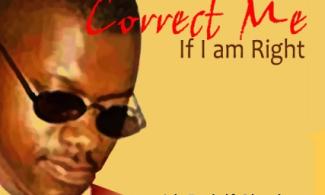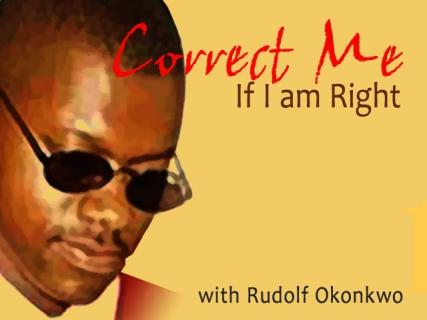
As a people, over many years of recklessness and neglect, we have come to have little esteem for our fellow human beings.
Overwhelming. Exhausting. Suffocating. That’s the overall feeling of those who are constantly watching the socio-political developments in Nigeria in this era of social media.
Whether you are on your dinning table about to guide a morsel of eba dipped inside a steamy okra soup, a prompt on social media of a picture of a woman killed by a mob on the streets of Kano could take the thrill away. If you are disciplined enough not to bring your phone or tablet to the dinning table, you may be the type that has replaced glancing at magazines on the bathroom basket with a scroll of your social media feed while sitting on the toilet. A barrage of pictures of dead and bloodied protesters fresh from Onitsha or Nkpor could trigger goose pimples down your spine. Even on a Sunday morning, right inside church, as you scroll down your online Bible to find the verse the preacher quoted and see if you could be the one to read it, a video of a wailing widow who lost her husband and children when herdsmen attacked their farming community could distract you.
As usual, there is the regular weekly setting on fire of a petty thief somewhere in a deprived community in Nigeria. (Have you ever wondered why it never happens in Banana Island neighborhood of Lagos or the Asokoro District of Abuja?) On the pages of the newspapers are the standard stories of religious men abusing young children and engaging in ritual killing. This one has become an epidemic. To get the full picture of the bad information terror, add to the scenario above the messages that flood your email inbox, Facebook message and Twitter Direct Message from friends, families and acquaintances who are directly and indirectly victims of these tragic events and the uncertainties the events inspire.
Then there are those who continue to work for months and have not been paid; those who lost their jobs due to continuing economic downturn and have no means to feed their families; those who were once the middle class but have vacated the oil fields of the Niger Delta region because of the activities of the Avengers; and those still sick in a poorly equipped hospital with medical personnel that are either jaded or ill-trained. In the midst of all these are constant streaming of news about money being recovered from public officials and new ones being stolen by current public officials.
Having gone on for so long in exactly this same manner, we pretty much know the maladies afflicting Nigeria. When we write, we rehearse it for those who were born yesterday and for posterity sake. We also know the solutions. We hardly talk about them because they are not palatable. We don’t talk about solutions because they often require sacrifices and pain from us all. They also require courage.
But even when we talk about solutions, we use what Albert Einstein called the thinking we used when we created the problems to seek the solutions. We are in a precarious situation and anything short of desperate measure will not do.
Even if we adopt a strict crime and punishment regiment, it will not be enough to get us out of the depth we have fallen into as a nation. If those who have lynched a thief have all been rounded up and sentenced to life in jail; if all those who have participated in mob actions like the one that killed Mrs. Bridget Agbahieme in Kano have been rounded up and tried and given long sentences; even if all police and military officers involved in the killing of unarmed protesters have been arrested, tried and sentenced, it would help reduce the frequency but it would not deal with what is fundamental in all those crimes – our lack of value for human life in Nigeria.
As a people, over many years of recklessness and neglect, we have come to have little esteem for our fellow human beings. To be able to justify our disregard for human life we find a way to separate ourselves from the people we want to make our targets. We have so many of such divisions- he is a thief and we are not- so we are justified in killing him. He is a Christian and we are not, so we are justified in killing him for reasons we have magnified beyond reason. He is a PDP member and we are APC so we are justified in killing him over which looter we should send to represent us. He is gay and we are not, so we are justified in killing him because in our scared little minds his lifestyle diminishes who we are. He is a Fulani and we are Ishan so we are justified in killing him because he is the strange other. He is a bloody civilian and we are security personnel so we are justified in killing him because we have the gun and he doesn’t. We have done so many killings that we have become desensitized to death in the hands of our fellow compatriots.
The above narrative continues to reign supreme because after over 100 years as a nation, we have refused to sign onto the fundamentals of nationhood, that is to commit ourselves to one nation in which we have equal rights in the nation to pursue the same core things every human anywhere in the world desires- the right to live, strive, and prosper. We have no confidence in ourselves and in our nation. Because of that we fear that by abiding by the basic essentials needed to build a nation, we will lose ourselves in the nation. So we carve out our separate enclaves. We have the religious, economic, social, ethnic and political enclaves. In a way, it is how most of the world is structured. The only difference is that in other functional societies, at the center are majority who believe and strive for the ideals. They are the ones preaching and working for a more perfect union. But in our own case, the ideals have not been defined and there are very few apostles for the ideals hitting the pavements preaching and advocating it.
We have mixed up the sacred and the profane that to untangle it we need nothing short of a cleansing. We need the absolution of our sins and a forthright acceptance that ‘we have strayed and the truth is not in us.’ To change our present poisonous narrative, we need massive reeducation of both the schooled and the unschooled. We have to replace our current shared story of agony for one that uplifts. We replace it by deeds, words and actions and not by political fiat or day-dreaming. Nigeria can contain us all but it will cost us. Are we willing to pay the price?
Rudolf Ogoo Okonkwo’s latest book, “This American Life Sef” is available on Amazon.com.
